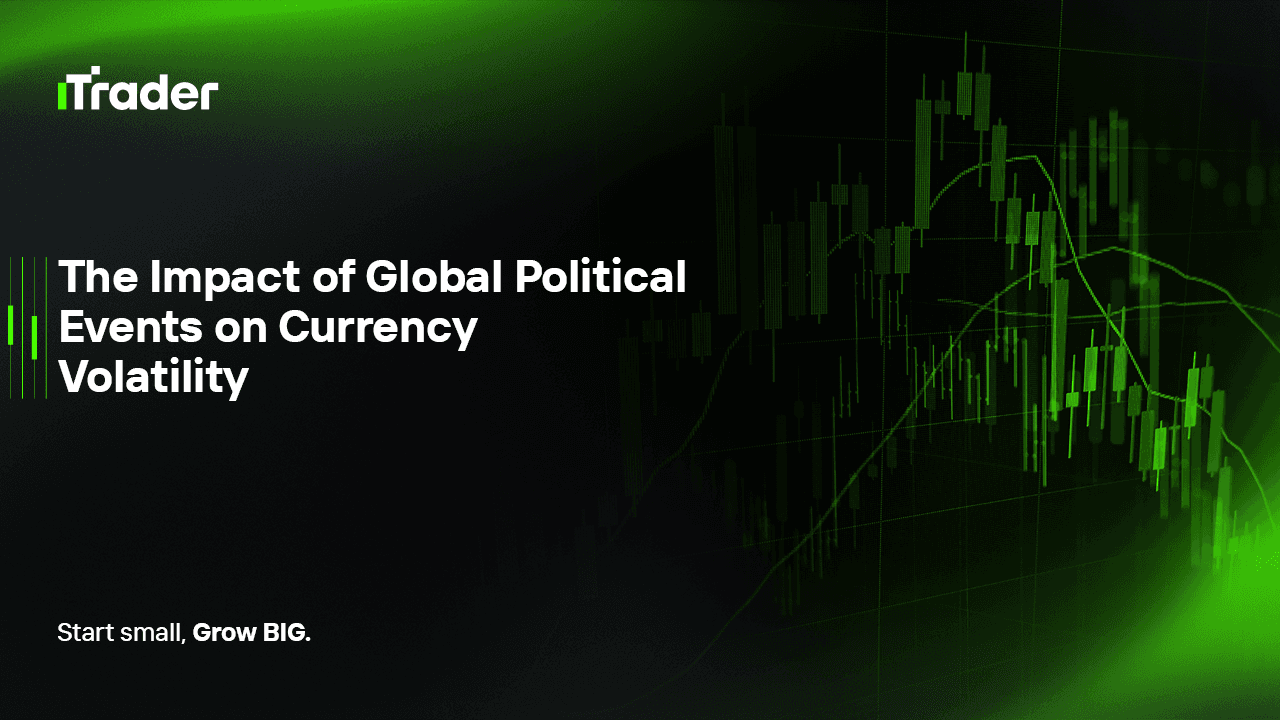2025-07-04
success depends not only on technical setups and statistical edges but also on navigating the unpredictable terrain of global political events. Geopolitical turmoil, policy changes, and election cycles often catalyze sharp movements in currency pairs, shifting sentiment faster than any economic report can. While volatility creates opportunity, it also amplifies risk — making it imperative for proprietary traders to understand and prepare for the political forces that drive the markets.

This blog explores how political events shape currency volatility and how forex prop traders can strategically position themselves before, during, and after such events.
AI Summary:
How do global political events influence forex markets? Political instability, elections, wars, sanctions, and policy shifts significantly affect currency volatility. Prop traders must learn to anticipate and hedge against these events using scenario analysis, volatility-based sizing, and adaptive risk management to stay ahead in dynamic markets.
Unlike equities or commodities, currencies are relative instruments — they reflect the comparative strength of two economies. When politics threatens the perceived stability or growth of one country, its currency reacts immediately.
Key mechanisms include:
Sudden shifts in power or uncertain outcomes (e.g., contested elections) cause dramatic repricing of risk. Market participants re-evaluate fiscal and monetary policy projections based on new leadership.
Armed conflict, especially involving major economies or key commodity-producing regions, drives risk-off flows and commodity currency weakness.
When nations impose sanctions or cut diplomatic ties, financial systems are disrupted. FX markets quickly respond to anticipated economic fallout.
Unexpected referendums (like Brexit) or sweeping policy proposals (currency pegs, capital controls) create large gaps and erratic movements.
The reaction is rarely linear — often it unfolds in phases:
Prop traders thrive on movement. Events like political surprises can provide strong directional moves or mean-reversion setups if reactions are overblown.
Unexpected gaps and slippage become more common. Strategies dependent on tight spreads, like scalping, may become unviable during these periods.
Some pairs may become untradable during crisis moments, with brokers widening spreads or suspending execution.
Avoid static lot sizes. Use ATR or implied volatility-adjusted risk models to scale down during uncertainty or widen stops.
Create event trees outlining possible outcomes and their probable market reactions. Pre-event straddles (long vol positions) may benefit from surprise outcomes.
Understand correlations — during crisis, USD, JPY, and CHF often strengthen. Commodity-linked currencies (AUD, NZD, CAD) may suffer.
Don't chase gaps or enter without volatility-adjusted risk. Let price action confirm sentiment shifts before committing.
In 2018, political tensions between the U.S. and Turkey — compounded by domestic economic mismanagement — triggered a dramatic collapse of the Turkish lira (TRY).
Lesson: Political risk is real and can become terminal without disciplined sizing and risk caps.
Forex prop traders should integrate the following tools into their playbook:
Not all political events impact the market equally. For effective trade management, prop traders should classify political risks into three levels:
Tier 1 includes scheduled events like elections or central bank speeches. These are known in advance, allowing traders to plan scenarios, adjust size, or trade volatility breakouts.
Tier 2 covers unexpected geopolitical shocks — such as wars or terrorist attacks — that cause sudden volatility spikes. In such cases, reducing exposure and waiting for stabilization is key.
Tier 3 involves long-term structural shifts like sanctions or coups. These require reassessing correlations and macro trends, as they can reshape currency behavior over months or years.
This tiered approach helps traders respond with strategy, not emotion — turning uncertainty into opportunity while protecting capital.
For prop traders, ignoring political risk is a recipe for exposure. But harnessing it — with discipline, strategic foresight, and adaptability — can offer rare windows of asymmetric opportunity. The key lies not in predicting the political event itself, but in anticipating market behavior in response to it. By doing so, traders not only protect capital but also capitalize on volatility that others fear.
In forex, politics is not just background noise — it is a primary driver of price.
© 2025 iTrader Global Limited | 公司注册号 15962
iTrader Global Limited 位于科摩罗联盟安儒昂自治岛穆察姆杜 Hamchako,并受科摩罗证券委员会(Securities Commission of the Comoros)许可及监管。我们的牌照号为 L15962/ITGL。
iTrader Global Limited 以“iTrader”作为交易名称,获授权从事外汇交易业务。公司的标志、商标及网站均为 iTrader Global Limited 的专属财产。
风险提示: 差价合约(CFD)交易因杠杆作用存在高风险,可能导致资金快速亏损,并非适合所有投资者。
交易资金、差价合约及其他高杠杆产品需要具备专业知识。
研究显示,84.01% 使用杠杆的交易者会遭受亏损。请务必充分了解相关风险,并确认在交易前已做好承担资金损失的准备。
iTrader 特此声明,不会对任何个人或法人在杠杆交易中产生的风险、亏损或其他损失承担全部责任。
本网站提供的新闻及信息仅用于教育目的。用户应独立且审慎地作出金融决策。
限制条款: iTrader 不会向法律、法规或政策禁止此类活动的国家或地区居民提供本网站或相关服务。若您居住在限制使用本网站或服务的司法管辖区,您有责任确保遵守当地法律。iTrader 不保证其网站内容在所有司法管辖区均适用或合法。
iTrader Global Limited 不向以下国家/地区的公民提供服务,包括但不限于:美国、巴西、加拿大、以色列及伊朗。